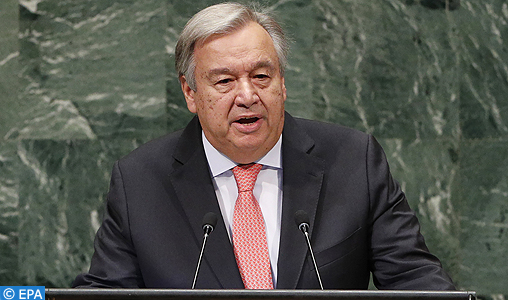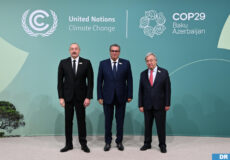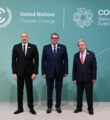Climate Change Impacts ‘Heading into Uncharted Territory’, Warns UN Chief
United Nations (New York) – The harmful impacts of climate change are taking us into ‘uncharted territories of destruction’, UN Secretary General, Antonio Guterres said on Tuesday.
Responding to the United in Science report released Tuesday, Mr. Guterres said that the latest science showed “we are still way off track”, adding that it remains shameful that resilience-building to climate shocks was still so neglected.
“It is a scandal that developed countries have failed to take adaptation seriously, and shrugged off their commitments to help the developing world” he added. “Adaptation finance needs are set to grow to at least $300 billion dollars a year by 2030”.
According to a multi-agency UN climate science report, “climate science is clear: we are heading in the wrong direction”, underlining that increasing fossil fuel emissions and rising greenhouse gases, are now at a record high, which risks thwarting plans to reduce global temperatures and avoid climate catastrophe.
The researchers behind “Uniting in Science”, coordinated by the World Meteorological Organization (WMO), studied several factors related to the climate crisis – from CO2 emissions, global temperature rises, and climate predictions; to “tipping points”, urban climate change, extreme weather impacts, and early warning systems.
One of the key conclusions of the report is that far more ambitious action is needed, if we are to avoid the physical and socioeconomic impacts of climate change having an increasingly devastating effect on the planet.
Greenhouse gas concentrations continue to rise to record highs, and fossil fuel emission rates are now above pre-pandemic levels, after a temporary drop due to lockdowns, pointing to a huge gap between aspiration and reality.
Cities, hosting billions of people, are responsible for up to 70 per cent of human-caused emissions: they will face increasing socio-economic impacts, the brunt of which will be faced by the most vulnerable populations, according to the report.
In order to achieve the goal of the Paris Agreement, namely keeping global temperature rises to 1.5 degrees Celsius above pre-industrial levels, greenhouse gas emission reduction pledges need to be seven times higher, says the report.
If the world reaches a climate “tipping point”, we will be faced with irreversible changes to the climate system. The report says that this cannot be ruled out: the past seven years were the warmest on record, and there is almost a 50-50 chance that, in the next five years, the annual mean temperature will temporarily be 1.5°C higher than the 1850-1900 average.














